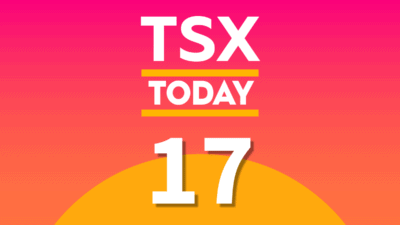A banking crisis has emerged across the southern border and the Atlantic. Regional banks in the U.S. and the third-largest bank in Switzerland have collapsed this month. Both governments have stepped in with rescue packages, but investors are worried it won’t be enough. That’s why all global banks, including Canadian ones, have lost market value this month.
The ongoing crisis is reminiscent of the 2008 financial crisis. However, Canadian banks were relatively insulated from that crisis and emerged stronger. They could be in a similar position this time. Some analysts believe the banking system in Canada is more diversified and better regulated which protects Canadians from the global crisis.
In this environment, domestic investors could seek out opportunities. You could either bet on Canada’s largest bank RBC (TSX:RY) or a smaller challenger bank such as EQ Bank (TSX:EQB). If you’re in the market seeking bargains, here’s what you need to know.
RBC
With $1.7 trillion in assets, Royal Bank of Canada is the nation’s largest lender. It’s also well diversified. Only 24% of its revenue is generated in the U.S., according to RBC’s latest quarterly report. Another 16% is generated in countries besides Canada and the U.S.
Meanwhile, much of the bank’s mortgage loans are insured by the Canada Mortgage and Housing Corporation and client deposits are backed by the Canada Deposit Insurance Corporation. Put simply, the bank’s assets are safer than its global peers.
However, the stock is down 7.4% over the past month, as investors retreat from the banking sector. That pushed RBC’s valuation down to just 1.76 times book value per share and 10 times forward earnings per share.
The bank’s dividend yield has also improved noticeably. RBC stock now offers a 4.16% passive return at current market price. Investors seeking a safe haven with reliable passive income should buy this blue-chip bank stock.
EQ Bank
Investors with an appetite for risk and better growth could consider niche lenders like Equitable Bank. Shares of EQB have plunged 17.76% month over month as of close on March 23.
Investors are far more skeptical about smaller financial institutions. That’s for good reason. Smaller Canadian banks and lenders focus on riskier segments of the market. Home Capital Group offered uninsured mortgages to subprime borrowers and experienced a partial bank run in 2017. Institutional investors rescued it with a $2 billion cash injection.
Similarly, Equitable Bank offers uninsured mortgages, commercial loans, equipment leasing financing and business loans — all riskier businesses but with higher interest rates and better returns. The bank’s return on equity is 15.9% at the end of 2022.
The bank has also raised its Allowance for Credit Losses (ACL) in recent quarters to mitigate risks. At the end of 2022, the bank’s ACL was 0.18% of total lending assets which seems adequate. Meanwhile, EQB’s stock is trading at 7.26 times earnings per share and a 12.5% discount to book value per share.
Put simply, if you’re looking for a high-risk, high-reward bank stock, EQB should be on your radar.
Bottom line
Canada’s bank stocks are sliding along with the rest of the world. However, our financial institutions may avoid the crisis. Dividend investors should target blue-chip bank stocks while growth investors could hunt for bargains in the mid-cap space.








